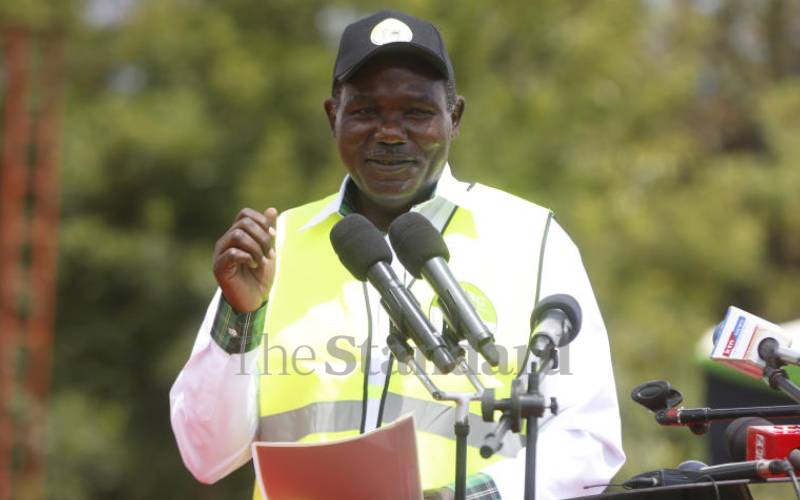×
The Standard e-Paper
Kenya’s Boldest Voice

IEBC Chairman Wafula Chebukati. [Kipsang Joseph, Standard]
As the countdown to next year’s General Election starts in earnest, the Independent Electoral and Boundaries Commission (IEBC) as a matter of concern should review voter education curriculum with emphasis put on political rights, political parties and, more crucially, leadership and good governance.